Ever walked past a street corner where people are gathered, music pouring out of speakers, and someone’s singing their heart out? That’s a concert. But what exactly concert means beyond that? It’s not just a show. It’s not just a bunch of people playing instruments. A concert is a live performance of music, organized for an audience to experience it in real time, in the same space as the performers.
What Makes a Concert Different From Other Music Events?
Not every musical gathering is a concert. A wedding band playing at a reception? That’s background music. A choir singing in church? That’s liturgical performance. A DJ spinning tracks at a club? That’s a set, not always a concert.
A true concert has three key ingredients: a planned program, a focused audience, and live musicians or vocalists performing without heavy pre-recording. The music is meant to be heard as it happens-imperfections, energy, and all. You’re not just listening to a track. You’re sharing a moment with the artist and everyone else in the room.
Think of it this way: if you can buy a ticket to sit or stand and watch a performer play from start to finish, it’s a concert. If the music is the main reason people showed up, it’s a concert. If the artist is there to perform, not just to promote something else, it’s a concert.
Types of Concerts You’ll Encounter
Concerts come in all shapes and sizes. You don’t need a stadium to have one. Here are the most common types:
- Solo concerts - One artist, maybe with a band. Think Taylor Swift on tour, or a jazz pianist playing in a small venue.
- Band concerts - Groups like Coldplay, Radiohead, or local garage bands playing together on stage.
- Orchestral concerts - Symphonies, chamber music, or opera performances with dozens of musicians. These often happen in dedicated concert halls.
- Festival concerts - Multiple acts over one or more days, like Coachella or Wellington’s New Year’s Eve music festival.
- Street concerts - Buskers, open-air performances in parks or plazas. No ticket needed, but still a concert.
- Acoustic or unplugged concerts - Minimal setup, often just voices and one or two instruments. Focuses on raw sound.
Each type has its own vibe. An orchestral concert in a cathedral feels different from a punk band blasting through a basement in Auckland. But they’re all concerts because the core is the same: live music, shared experience.
Why Do People Go to Concerts?
People don’t just go to hear music. They go to feel something.
Studies from the University of London show that attending live music events triggers the release of dopamine and oxytocin - the same chemicals linked to happiness and bonding. That’s why fans scream, cry, or hug strangers after a show. It’s not just about the songs. It’s about connection.
For many, concerts are a form of escape. After a long week, standing in a crowd, singing along to lyrics that mean something, you forget your worries. For others, it’s a ritual - seeing your favorite artist live is like checking off a bucket list item.
And let’s not forget the social side. Going to a concert with friends? It becomes a memory. You remember the smell of the venue, the guy in front of you dancing badly, the moment the lights went out and the first note hit.
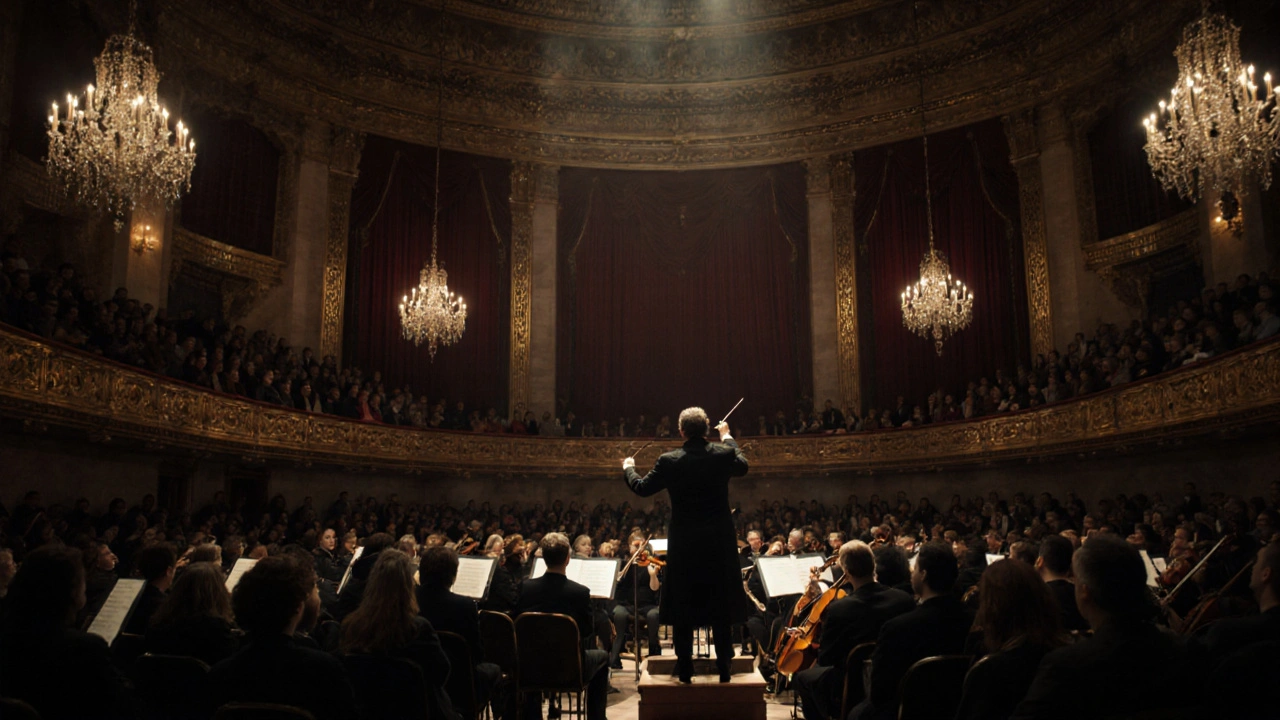
Where Do Concerts Happen?
Concerts can be anywhere people gather and music can be heard clearly.
- Concert halls - Designed for sound, like the Wellington Town Hall or Carnegie Hall in New York. Usually for classical or acoustic performances.
- Arenas and stadiums - Big spaces for pop stars, rock bands, or hip-hop acts with massive crowds. Think Spark Arena in Auckland.
- Clubs and bars - Intimate, loud, and often for emerging artists. You might pay $10 and stand shoulder-to-shoulder with 200 others.
- Outdoor venues - Beaches, parks, amphitheaters. These are popular in summer. Wellington’s Shed 6 or Auckland’s Western Springs are common spots.
- Online concerts - Live-streamed performances. While not the same as being there, they still count as concerts if they’re real-time and interactive.
Location shapes the experience. A concert in a tiny venue feels personal. One in a stadium feels epic. Both are valid. Both are concerts.
How Long Do Concerts Last?
There’s no fixed rule, but most concerts last between 90 minutes and two and a half hours. That includes one or two breaks, called encores.
Encores aren’t just extra songs. They’re the emotional peak. The crowd chants, the lights dim, and the band comes back - often with a hit song they saved for last. That’s the moment people remember.
Smaller gigs, like acoustic sets or open mic nights, might run 45 minutes. Big festival sets can stretch to 90 minutes per act. Classical concerts often include intermissions - a chance to stretch, grab a drink, and talk about the piece you just heard.
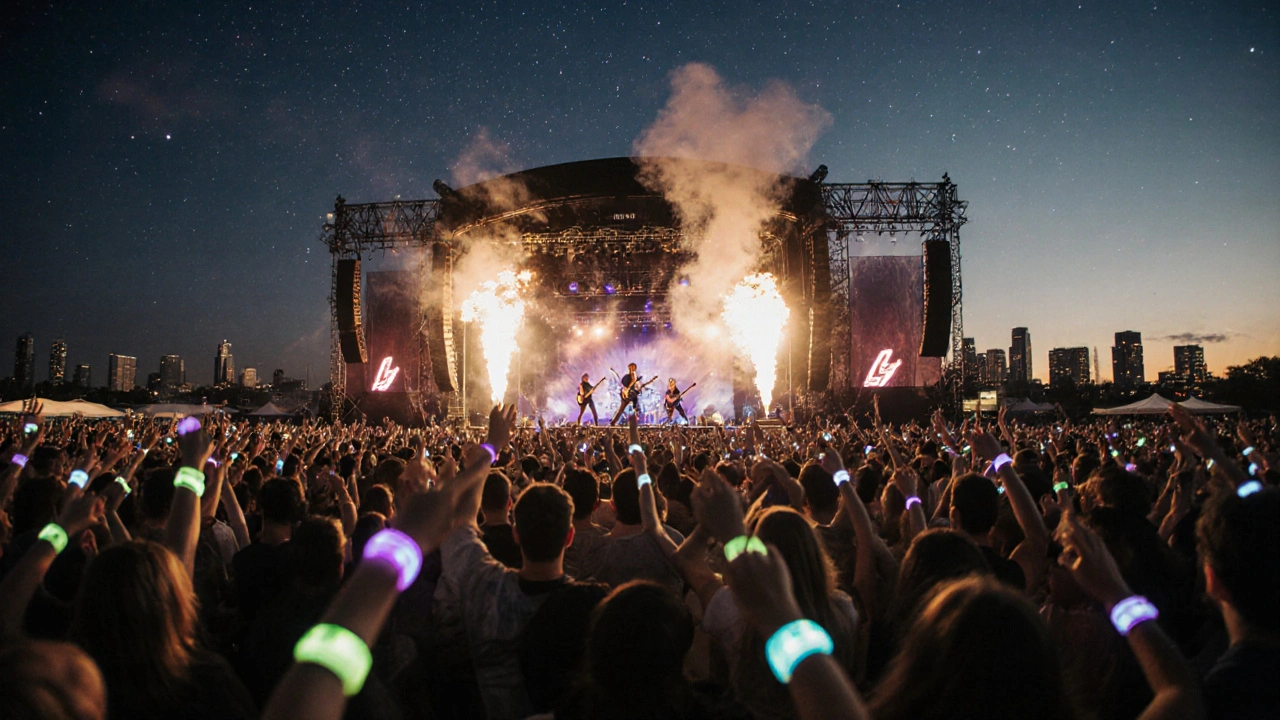
What’s the History of Concerts?
Concerts aren’t new. The word comes from the Latin concertare, meaning “to contend” or “to compete.” In the 17th century, concerts were private events for royalty and the wealthy. Composers like Mozart and Bach wrote pieces to be performed in courtrooms or salons.
By the 1800s, public concerts became common in Europe. People started buying tickets to hear symphonies. The idea of a ticketed, scheduled performance for the general public took off. In the 20th century, rock and pop turned concerts into mass cultural events.
Today, concerts are global. A band in Tokyo can perform the same setlist as one in Sydney, streamed live to fans in Berlin. But the heart hasn’t changed. It’s still about music, presence, and shared emotion.
What’s Not a Concert?
Let’s clear up some confusion.
- A music video shoot? Not a concert. Even if people are watching, it’s recorded and edited.
- A karaoke night? Not a concert. No professional performers, no planned setlist.
- A YouTube livestream of someone playing guitar at home? Technically, it’s a performance - but unless it’s promoted as a concert and structured like one, most wouldn’t call it that.
- A DJ set at a party? It’s a set. Unless the DJ is the main attraction and the crowd came specifically for them, it’s not usually labeled a concert.
The line can blur, especially with technology. But if it’s planned, ticketed, live, and centered around a musical performance - it’s a concert.
Why Does This Matter?
Understanding what a concert is helps you appreciate it more. When you know the effort behind it - the rehearsals, the sound checks, the logistics - you don’t just see a show. You see a moment crafted for connection.
It also helps you find the right events. If you love raw, emotional music, go for acoustic gigs. If you want to feel the bass in your chest, head to a stadium show. If you want to hear centuries-old compositions played with precision, look for orchestral concerts.
And if you’ve never been to one? Go. Find a local band playing in a café. Buy a cheap ticket. Stand in the crowd. Let the music wash over you. That’s what a concert is meant for - not just to hear, but to feel.
Is a concert the same as a recital?
Not exactly. A recital is usually a solo performance, often classical, and focuses on technical skill rather than entertainment. It’s common in music schools or small halls. A concert is broader - it can include bands, singers, ensembles, and is designed for a general audience. Recitals are often free or low-cost, while concerts usually have ticket pricing.
Can a concert be virtual?
Yes. Virtual concerts are live-streamed performances where the artist plays in real time, often interacting with viewers. Platforms like YouTube, Instagram Live, or StageIt host them. While you’re not physically there, the performance is live, unedited, and intentional - so it still counts as a concert. Many artists now offer hybrid shows: in-person and online at the same time.
Do you need tickets for every concert?
No. Many concerts, especially street performances, park events, or community shows, are free. Others require tickets for entry, especially in venues with limited space or high demand. Free doesn’t mean less real - a busker playing on a street corner is still giving a concert. The difference is in access, not authenticity.
What’s the difference between a concert and a gig?
"Gig" is slang for a performance, often used by musicians. It can mean any paid job - a wedding, a bar show, even a radio session. A concert is more formal: planned, promoted, and usually the main event. All concerts are gigs, but not all gigs are concerts.
Are concerts only for popular music?
No. Concerts include classical, jazz, folk, electronic, metal, opera, and more. Any genre can have a concert as long as it’s a live, organized performance for an audience. In fact, many classical music lovers prefer concerts because they offer a deeper connection to the composition than recordings ever can.

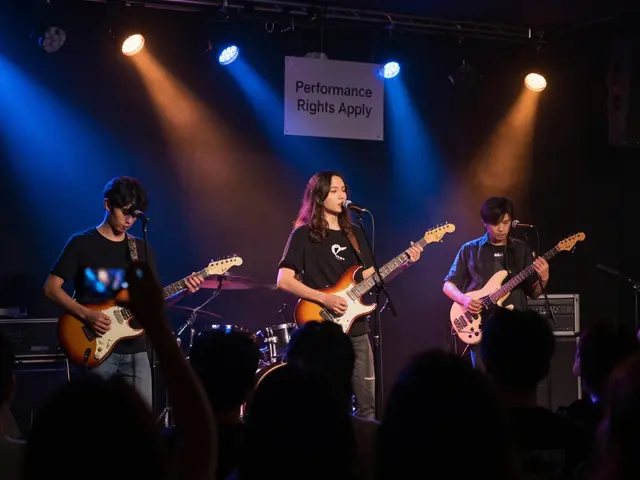
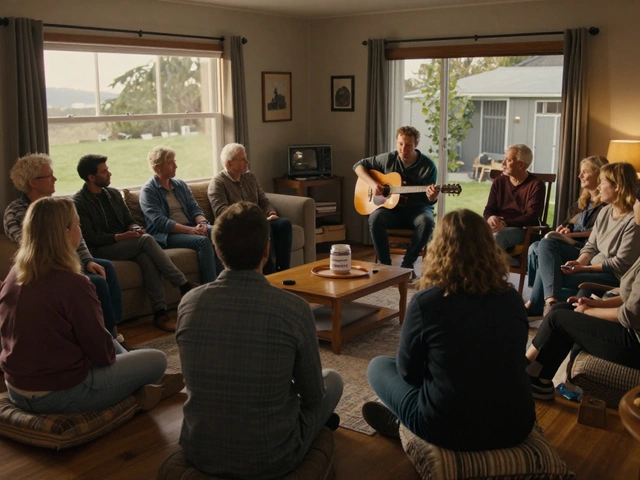

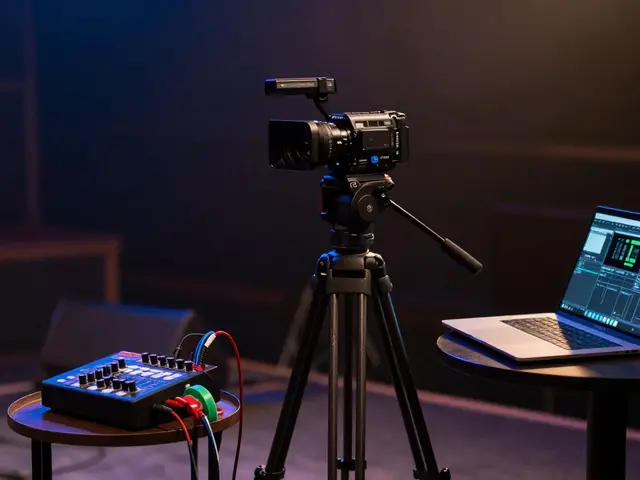

Mbuyiselwa Cindi
Just went to a street concert in Cape Town last weekend - busker with a broken guitar and a voice like honey. No tickets, no stage, just pure emotion. That’s what concerts are really about: connection, not capacity. You don’t need a stadium to feel it.
Sarah Meadows
Let’s be real - if it’s not a ticketed, DRM-protected, Billboard-chart-eligible, corporate-sponsored audio-visual spectacle with synchronized pyrotechnics and a branded merch pop-up, it’s not a concert. It’s background noise with a crowd. This ‘street concert’ nonsense is just cultural dilution disguised as inclusivity.
Nathan Pena
Actually, the etymology of ‘concert’ derives from the Latin ‘concertare,’ meaning ‘to contend’ - not merely ‘to perform.’ This misapplication of the term reflects a broader semiotic collapse in postmodern auditory culture. A busker is not a performer in the Aristotelian sense; they are an incidental acoustic phenomenon. True concert-hall acoustics require Helmholtz resonance, not the chaotic diffraction of urban echo chambers.
Henry Kelley
idk man i think if someone’s playing music and people stop to listen, that’s a concert. who cares if it’s in a basement or a stadium? i once saw a guy play ‘stairway to heaven’ on a kazoo outside a 7-eleven and half the block was crying. that was a concert.
Krzysztof Lasocki
Oh so now we’re defining concerts by the size of the venue? Next you’ll tell me a TikTok dance challenge is a ballet. I’ve seen 300 people lose their minds at a 12-person jazz trio in a Brooklyn basement. That’s more concert than 80% of the EDM festivals with 10,000 drones and zero soul.
Victoria Kingsbury
As someone who’s engineered live sound for 12 years, I can tell you - the real difference is in the sound pressure level curve and the lack of compression. A true concert has dynamic range. A DJ set? That’s a brickwalled mess. An orchestral piece? That’s art. A busker? Sometimes it’s more raw than a stadium show. It’s not about the ticket price - it’s about intentionality in the sonic space.
Rocky Wyatt
They’re lying to you. The government and the music industry are using ‘concert’ as a distraction. Real music is being buried under this performative ‘experience’ crap. You think people go to hear music? No. They go to be scanned by facial recognition, tracked by Bluetooth beacons, and sold overpriced water. That’s not a concert - it’s a data harvest with bass.
Natasha Madison
How can you call a street performance a concert when it’s not even vetted by the Department of Cultural Integrity? We’re letting unlicensed, unregulated, foreign-sounding noise pollute our public spaces. This isn’t freedom - it’s cultural erosion. America used to have standards.
Sheila Alston
And yet, you still let your kids go to these places? You think it’s safe? There’s no supervision. No moral framework. Just chaos and dopamine spikes. What kind of parent lets their child be exposed to that kind of unstructured emotional manipulation? It’s not music - it’s anarchy in minor key.
VIRENDER KAUL
One must understand that the concept of concert as a social phenomenon is deeply rooted in the hierarchical structures of Western classical tradition. To equate a street performer with a symphony orchestra is to commit epistemological violence against the very notion of artistic discipline. The former is spontaneous noise; the latter is disciplined transcendence. One requires years of training, the other requires a guitar and a cup.
Veera Mavalwala
Concerts are the last sacred space where the soul can scream without being muted by algorithms. I’ve cried at a garage band playing covers in a parking lot because the singer’s voice cracked on the bridge - that crack? That was truth. Not some auto-tuned robot in a hologram suit singing the same 12 notes for the 400th time. Real music bleeds. Fake music sells.
Ray Htoo
Wait - so does a live-streamed set from a bedroom in Tokyo count? I saw this guy play violin while his cat walked across the keys. No crowd, no ticket, just a webcam and 12,000 people watching. Was that a concert? Or just a very loud livestream? I need to know for my thesis.
Santhosh Santhosh
When I was a child in Kerala, we used to gather under the banyan tree every Friday evening. A local teacher would play the violin, and everyone would sit quietly, some with eyes closed, some holding hands. No one charged money. No one recorded it. But when the last note faded, the silence was heavier than any applause. That was a concert. Not because of the venue or the crowd size, but because the music was offered with the intention to heal, not to impress. Modern concerts have forgotten that. They are performances now. Not offerings.
Mike Marciniak
Concerts are a front. The real purpose is to implant subliminal frequencies in the audience’s brainwaves. The bass drops? That’s not for fun - it’s to lower your resistance to advertising. The crowd chanting? That’s synchronized neural conditioning. The ‘shared emotion’ you feel? That’s a manufactured response from a billion-dollar psyops campaign disguised as music. Wake up.